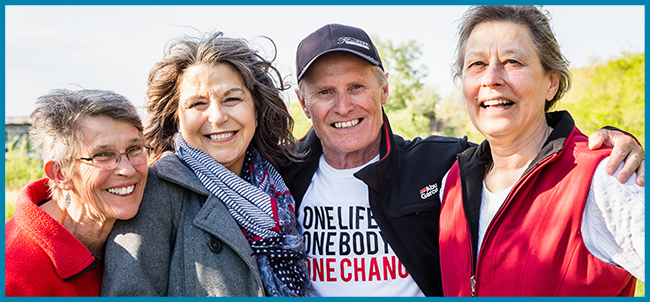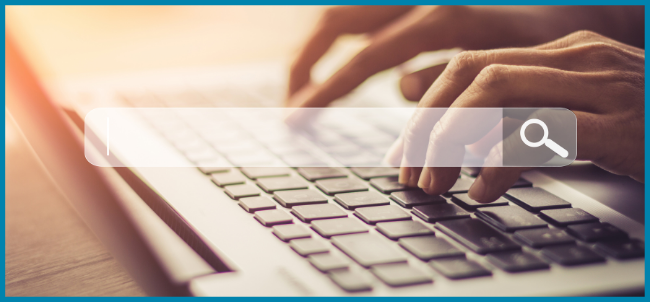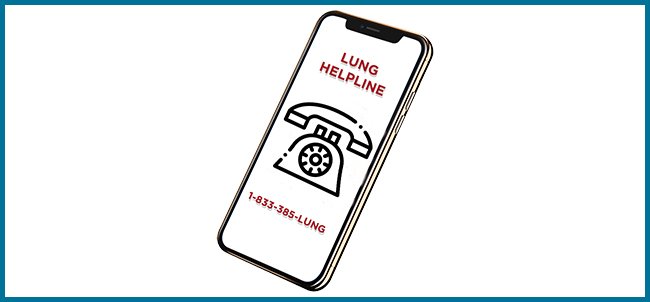Managing Fatigue from Long COVID
After having COVID-19, you might find that you have less energy than you did before. Things like everyday activities, your work, and other activities that need physical, mental, and emotional energy may quickly feel exhausting. Trying to simply push through this fatigue can leave you feeling worse. There are, however, things you can do that can help manage your fatigue.
 What causes fatigue after COVID-19?
What causes fatigue after COVID-19?
Although we don’t know exactly why so many people have ongoing fatigue after having COVID-19, having feelings of fatigue after a viral infection is common, and having fatigue with a COVID-19 infection is no different. Some researchers believe it may be as a result of an overreaction of the body’s immune system, and some also believe there is a continued response to COVID even though the infection has cleared.
What can I do to manage fatigue from Long COVID?
So what can you do if you're suffering from post-COVID fatigue? Unfortunately, there is no medication available specifically for fatigue, but there are a few things you can do to manage it.
- Find routines for your sleep. Fatigue is much worse when your sleep patterns are disturbed. Find routines like going to bed and getting up at the same time every day, avoid screens before you sleep (phone, computer, TV) the hour before your go to bed and avoid caffeinated drinks (coffee, tea, pop etc.) or alcohol several hours before your go to sleep.
- Accept that you may have good days and bad days. Accept that fatigue is real and can affect your everyday well-being. You may have both good days and bad. Accepting and coming to terms with your fatigue means that there may be days that you do more than other days so try not to be hard on yourself.
- Try relaxation activities. Relaxation activities can help with fatigue as they promote a good sleep pattern and can help reduce stress. You might want to try things like mindful meditation, aromatherapy, yoga, tai chi, and other activities you find relaxing, like reading or having a long shower or bath.
- Eat well. A healthy diet can help. Eat healthy foods and stay hydrated. Avoiding unhealthy fats (like fried foods), processed foods, and excessive sugar, can help.
- Keep a fatigue and activity diary. A symptom diary can help you monitor how you are feeling over time and alert you to what triggers an increase in your fatigue levels while you go about your daily activities. Keep a short record of what you have done during the day, how you feel after each activity, and if you notice anything that makes your symptoms or fatigue worse. Diaries can help you spot unhelpful activity patterns.
- Try some exercise or physical activity. As you begin to feel better, you may feel like you can do more. Be careful. Increase your activity gradually and take time to assess how an activity is affecting your fatigue. Do not try to push through your fatigue; pay close attention to any signs your symptoms are getting worse.
Remember the 3 Ps - Plan, Prioritise, and Pace.
- Plan
- Plan each day in advance. Make lists to avoid feeling overwhelmed and to get things done as efficiently as possible.
- Plan for breaks and periods to rest during your day.
- Spread activities that require a lot of energy throughout the week and do them when you feel you have the most energy. Break down activities that require a lot of energy into smaller parts and work away at it.
- Schedule in fun activities.
- Prioritise
- Decide which activities are most important to you. If an activity is very important to you, do it when you have the most energy. For less important activities, decide on whether they really need to be done or think about delegating them (ask for help).
- When setting priorities ask yourself:
- What activities are most important to me?
- What are my expectations, and those of my family and friends?
- Do I need to do these tasks as often as I did before or even at all?
- Pace
- Energy can’t be stored to use at a later time. Learning how to manage your energy and fatigue on a daily basis is important. Pacing is a set of strategies that can help you tackle your daily routine with less fatigue.
- Think about areas where you can save energy, for example, online shopping rather than a trip to the grocery store.
- Alternate periods of rest and work when you need to get something done. Take breaks before you feel tired.
- Give yourself enough time to get a good night’s sleep.
- Work efficiently:
- Organize your work environment (whether it be your computer desk or your kitchen). Have things ready and available to you in easy locations.
- Perform tasks sitting down if possible, e.g., peeling vegetables, folding clothes, etc. The seated position requires 25% less energy!
Other Helpful Resources
Watch these Videos:
- The Power of Breathing: Utilizing the BradCliff® Method
- Shortness of Breath and Long COVID, What have we Learned?





